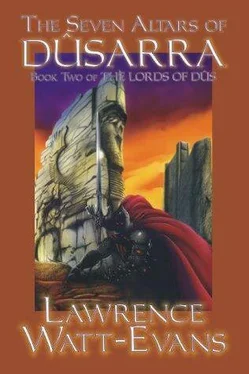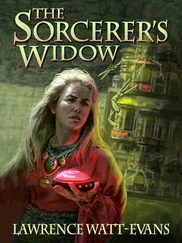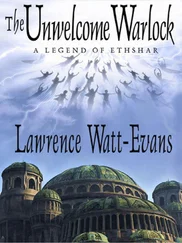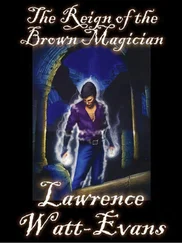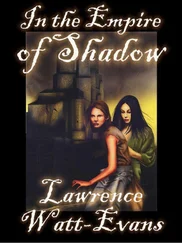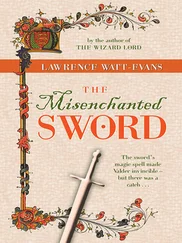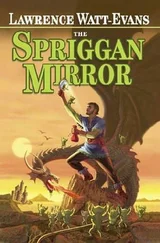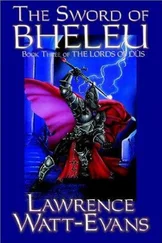Lawrence Watt-Evans - The Seven Altars of Dusarra
Здесь есть возможность читать онлайн «Lawrence Watt-Evans - The Seven Altars of Dusarra» весь текст электронной книги совершенно бесплатно (целиком полную версию без сокращений). В некоторых случаях можно слушать аудио, скачать через торрент в формате fb2 и присутствует краткое содержание. Жанр: Фэнтези, на английском языке. Описание произведения, (предисловие) а так же отзывы посетителей доступны на портале библиотеки ЛибКат.
- Название:The Seven Altars of Dusarra
- Автор:
- Жанр:
- Год:неизвестен
- ISBN:нет данных
- Рейтинг книги:3 / 5. Голосов: 1
-
Избранное:Добавить в избранное
- Отзывы:
-
Ваша оценка:
- 60
- 1
- 2
- 3
- 4
- 5
The Seven Altars of Dusarra: краткое содержание, описание и аннотация
Предлагаем к чтению аннотацию, описание, краткое содержание или предисловие (зависит от того, что написал сам автор книги «The Seven Altars of Dusarra»). Если вы не нашли необходимую информацию о книге — напишите в комментариях, мы постараемся отыскать её.
The Seven Altars of Dusarra — читать онлайн бесплатно полную книгу (весь текст) целиком
Ниже представлен текст книги, разбитый по страницам. Система сохранения места последней прочитанной страницы, позволяет с удобством читать онлайн бесплатно книгу «The Seven Altars of Dusarra», без необходимости каждый раз заново искать на чём Вы остановились. Поставьте закладку, и сможете в любой момент перейти на страницу, на которой закончили чтение.
Интервал:
Закладка:
"And what is so special about Dыsarra?"
"You do not know?"
"No."
"The very name tells you."
Garth had paid little attention to the name, assuming it nothing but a noise that represented this particular place; he considered it a bit more carefully, and still saw nothing significant in it. The ending was a standard designation for a gathering place, and the root, Dыs, was completely unknown to him.
"I do not understand."
"`Dыsarra' means `the place of the Dark Gods' Here we worship the gods shunned by the outside world; mostly Tema, the goddess of night. Perhaps, stranger, you have made a mistake in coming here if you did not know that."
"Perhaps I have." He sat silently for a moment, thinking.
He should have expected something like this from the Forgotten King. He knew very little about human religions, beyond the fact that no two seemed to agree about anything, but he had heard of the Dark Gods; they were supposed to demand human sacrifices, and to be wholly evil in nature. It had been rumored that the Baron of Skelleth was a secret devotee of theirs, and that had been considered sufficient grounds for immediate execution if proven; it remained only a vague rumor. It was said that, unlike most gods, they still interfered directly in mortal affairs, and would grant their followers special powers and abilities in exchange for gruesome payments of blood, death, and torture. Evil wizards were said to have sold themselves-their souls, to use the human term that overmen did not use-to the Dark Gods.
And the entire city of Dыsarra worshipped these deities? It seemed incredible. How could a thinking being worship evil?
"Tell me, then, about these gods." At least the conversation had taken a turn toward the temples without obviously being steered there.
"There are seven of them, the seven Lords of Dыs, the counterparts to the seven Lords of Eir worshipped elsewhere. I know very little about most of them; I am a follower of Tema, like the rest of my family."
"How did you come to be such?"
"I was brought up in the faith, of course."
"How did the city come to worship these gods?"
"I don't know; it always has. My father told me once that it was part of a cosmic balance that these misunderstood and maligned gods should have one city of their own."
"Are they not evil?"
"Tema is not!" Her face was suddenly animated, and Garth was taken aback by her ferocity. "Tema is beautiful! The night is wonderful, cool and calm; I would never be a day worshipper! How can people live with all that glaring light? And all the sweaty heat? And all the beasts roam by day, and insects. The sun is so bright you cannot look at it, and it drowns out all the beauty of the flames. There are no stars in the daytime! I…" She subsided suddenly. "Forgive me."
"No, forgive me; I did not mean to offend you. In other lands I have visited, the Dark Gods are thought to be the gods of evil."
She shrugged. "They are obviously ignorant heathens. There are no evil gods, really; evil is just misunderstandings between people, or between people and the gods. That's what the priests say."
"I see. You worship the night-goddess. What of the other six?"
"They have their followers, too, but I do not heed them. I sometimes think that some of them are evil, despite what the priests say. Aghad, for example; his followers make my skin crawl, and his priests frighten me. I have seen them gathering at his temple. And of course, no one worships The God Whose Name Is Not Spoken, though he has a temple."
Garth began to have a rather unsettled feeling; he had heard of The God Whose Name Is Not Spoken. That was the god of death, known throughout the world; it was said that to speak his true name was to die instantly. And they worshipped him here?
No, the girl had just said that they did not, but that there was a temple dedicated to him. Was it one of the seven he would have to rob?
It must be; everyone seemed to agree that there were only seven temples in Dыsarra. Although he would not admit to being in any way superstitious, and although his own people insisted that either there were no gods or they did not meddle in the affairs of mortals, he did not care to rob the temple of Death.
On the other hand, his practical sense told him, if there were no worshippers, it would be unguarded and the easiest of the lot.
"Tell me who the seven gods are."
"You mean the seven who have temples?"
"Are there others?"
"Oh, yes; there's Tema's daughter Mei, the lady of the moon, and any number of others."
"Just tell me the seven."
"Bheleu, P'hul, Sai, Aghad, Andhur Regvos, and Tema."
"That's only six, if I heard you rightly."
"Well and there's the Unnamed God. You know."
"Oh, of course." It was apparently considered bad luck to mention the death-god too often even by circumlocution. "I know him, and P'hul, and you have told me Tema is the goddess of the night; who are the others?"
"Bheleu is god of destruction and war, I think. Andhur Regvos is the god of darkness."
"Why has he got two names?"
"I don't know."
"Oh. Go on; what about the other two?"
"I don't know; Aghad and Sai are secret. Their temples admit no outsiders. They both…well, that's just a rumor. Never mind."
"And all the city lives by night, to accord with their religion?"
"Oh, no! Not all! Only the worshippers of night and darkness. But we're most of the city. I don't know anyone who lives by day, but of course that's partly because I'm asleep all day."
"I am interested in this; could I visit the temples?"
"I don't know about the others, but I can take you to the temple of Tema."
"Good. But first," he said, realizing that he had been talking while his food grew cold and that he was ravenously hungry, "I will eat."
He did so, and found the food and drink good; the girl laughed gaily when he tried to eat the apple core and all.
CHAPTER SEVEN
The temple of Tema was a massive, imposing structure; most of its area was covered by a looming black dome, which Garth thought was probably the one he had first seen from ten leagues' distance, and the entrance was through the base of a tower that stood a good hundred feet in height. The entire building was constructed of huge blocks of black stone, finely polished, and with elaborate carvings on either side of the wide, open doorway. The door was reached by climbing a flight of thirteen black stone steps, flanked by balustrades carved into a maze of intertwined black serpents. Garth did not particularly care for the place; although undeniably impressive, he did not like the impression it gave of looming over one, black in the moonlight, and the way its size served to diminish its inhabitants. The robed and hooded figures entering the dark portal looked like little children, out of proportion with their surroundings.
He also didn't like the darkness within; not the slightest glimmer of light showed through the door. That was appropriate for the temple of the goddess of night, but he still didn't like it.
The tavern girl was beside him as he mounted the steps; it occurred to him suddenly that he didn't know her name. Of course, she didn't know his name, either. Ahead of them three other worshippers, robed in midnight blue, vanished into the darkness of the doorway.
A moment later, he and the girl also stepped into the gloom of the interior. Garth paused for a moment, to let his eyes adjust, and realized he could detect no trace of the three who had entered just ahead of them; no sound of rustling clothing, no footsteps, no odor. His psychic discomfort increased.
The girl had not hesitated, as he had, and was across the room, an antechamber about forty feet square; he heard her whisper, "Come on!" He came, and rejoined her, standing a pace or two from the inner wall. He had expected a draped doorway, or some other opening into the temple proper, but could make out no sign of one; there seemed to be merely a blank stone wall. Then, with startling abruptness, a portion of the stone wall swung inward; the heavy scent of incense drifted out to him. He made out a figure in the opening, darkly clad, but with-pale skin and white hair that gleamed in the faint moonlight that reached it. The darkness within that opening seemed no more absolute than in the antechamber; that was some comfort, anyway. The girl stepped through the opening, and he followed, to find himself in the main temple.
Читать дальшеИнтервал:
Закладка:
Похожие книги на «The Seven Altars of Dusarra»
Представляем Вашему вниманию похожие книги на «The Seven Altars of Dusarra» списком для выбора. Мы отобрали схожую по названию и смыслу литературу в надежде предоставить читателям больше вариантов отыскать новые, интересные, ещё непрочитанные произведения.
Обсуждение, отзывы о книге «The Seven Altars of Dusarra» и просто собственные мнения читателей. Оставьте ваши комментарии, напишите, что Вы думаете о произведении, его смысле или главных героях. Укажите что конкретно понравилось, а что нет, и почему Вы так считаете.
